#he’s compassionate in his own way.. such an excellent performance
Explore tagged Tumblr posts
Text
Matthew Needham continues to blow me away.
#HES SO GOOD. hes so great.#I love the way Larys looks surprised to find himself crying when he’s at Aegon’s bedside.#crying for himself. crying for Aegon as well perhaps#he’s compassionate in his own way.. such an excellent performance#house of the dragon#hotd spoilers#house of the dragon spoilers#larys strong#matthew needham
18 notes
·
View notes
Text
James from Team Rocket is a truly complex character and very difficult to understand. At first glance, he appears confident and arrogant, but that's a role he plays as the "Team Rocket villain" and on stage, as explained in episodes DP 139: "A Faux Oak Finish" and DP 146: "Dressed for Jess Success!"
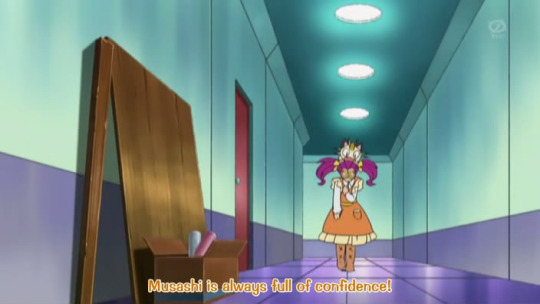
In private, outside his Team Rocket role, he is calm, rather shy, he is very anxious and follows his teammates' ideas even when he doesn't fully agree with their plans.
In the episode "A Hole Lotta Trouble," Brock and Ash tell James that he must learn to assert himself without his teammates.
James had a childhood in the high aristocracy, where he could have anything material he wanted, but his parents gave him no affection, demeaned him, and forced him to follow strict and severe discipline like in the Victorian era. They also forced him into an arranged engagement with Jessiebelle, allowing her to train him with whips. He kept a deep trauma from this period of his life.

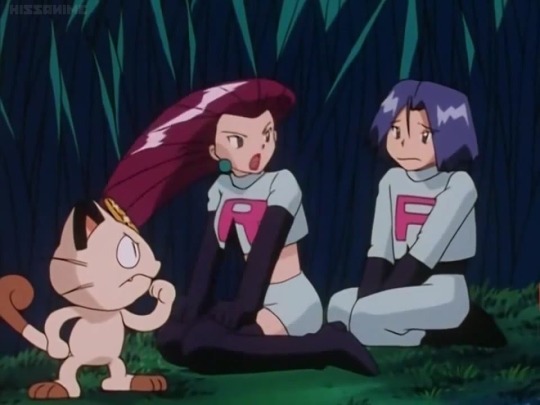
He joined Team Rocket to rebel against the rules and proper conduct imposed on him in his childhood.
In an interview, the Japanese voice actors of Team Rocket: Megumi Hayashibara, Inuko Inuyama, and Miki Shinichiro, revealed that Jessie's goal in Team Rocket is to become rich or an important woman (which is why she dislikes Matori), Meowth also wishes to be important by taking the place of the boss's favorite Pokémon, replacing Persian. However, James's objective is solely to support and help his two friends achieve their goals and dreams, making them happy.
When James gains a little confidence in himself or engages in an activity he's passionate about and sure he can succeed, he becomes overly enthusiastic. However, he quickly falls into depression if he fails. An episode that shows this aspect of his personality is 'The Fortune Hunters' when James imagines himself as a powerful Moltres due to the description in a Pokemon horoscope book, which turns out to be false.
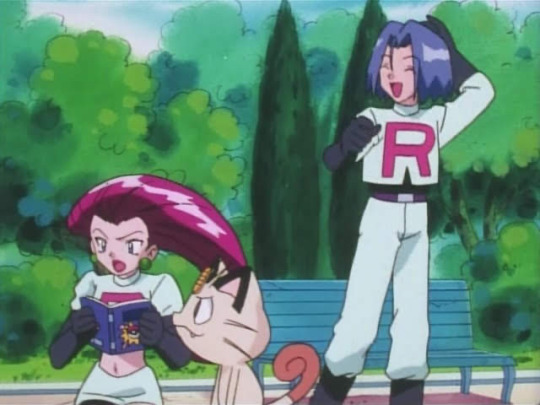
He is also willing to wholeheartedly encourage people he admires, like Jessie during her Kalos contests or 'The Royal Mask' (under the pseudonym Fire-Kojiro, reminiscent of when he felt strong and proud like a Moltres).
Yet, when he has to put himself in the spotlight outside of Team Rocket missions, he feels terribly uncomfortable and automatically convinces himself that he will lose or isn't capable (The Battlefield of Truth and Love!, Dressed for Jess Success, Party Dancecapades)."

Unlike Jessie, who thinks she's the best at everything, James has very low self-esteem and undervalues himself: believing for example others can take better care of his own Pokemon like Gardenia with Cacnea or Mareanie with her ex-boyfriend. He also thinks Jessie will be happier with Dr. White than with him in Team Rocket.
As demonstrated in episode 19 of "Pokémon Journeys" - A Talent for Imitation! Jessie is an excellent self-confidence coach, pushing her teammates and Pokémon to go beyond their limits and overcome their fears and apprehensions.
Jessie and Meowth are both invaluable support for James. Through their friendship and the trust they give him, he finally feels loved and respected for who he truly is. They are more than just friends; they are his family!
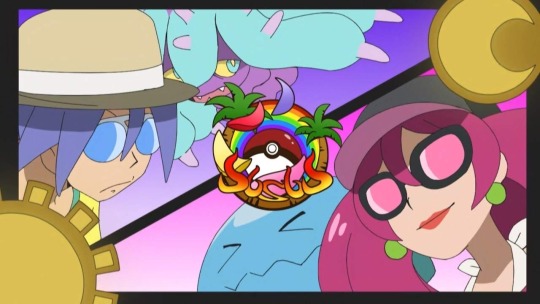
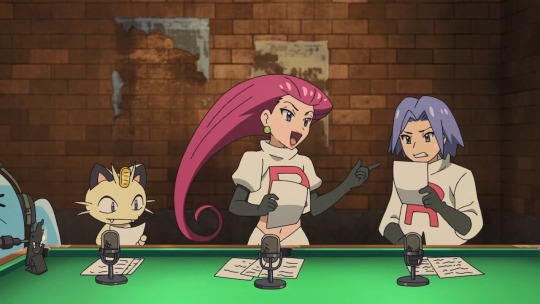
James may appear naive and childish, often being very emotional and crybaby. Despite this, he excels in a lot of various fields, such as being an excellent technician, a talented actor, a poet, and well-informed about Pokemon… He's also skilled in computer science and hacking. On rare occasions when he's involved in a Pokemon battle or contest, he performs remarkably well.
When he forgot his fear under the effect of adrenaline to protect his Mareanie, he even demonstrated incredible strength!
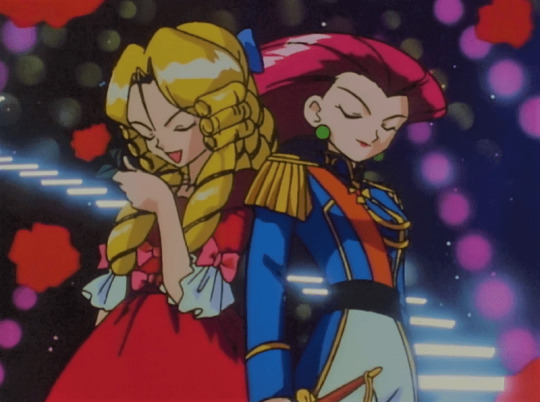
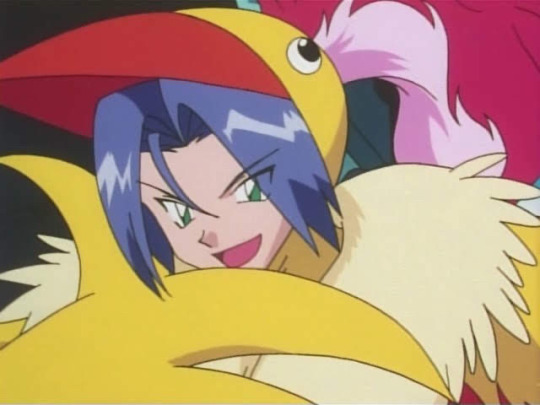
Even though he is part of Team Rocket, James doesn't have a truly evil nature. In reality, he is a compassionate Pokemon trainer, loving his Pokemon so much that their affection hurts him physically, yet he always lets them show their love to him in this way. 💖

#team rocket#pokemon#james team rocket#anipoke#james#コジロウ#kojiro#ロケット団#james pokemon#pokemon anime#rocketshipping#rocketshipping jessie and james#jessie team rocket#jessie and james#team rocket trio#teamrocket#cute#pokemon james#description
450 notes
·
View notes
Text
My spoiler free assorted thoughts on Nosferatu 2024
The mustache is amazing I don’t care what any of you say, it’s giving Vlad the Impaler and I love it.
The costumes are gorgeous and very accurate from what I’ve heard. Orlok’s costume is excellent, the way his clothes look as ancient as he does. And the dresses and bonnets?? *chef kiss!*
The muted color scheme works for this movie, like a melancholy pall just hangs over everything and it really suits the atmosphere. It’s also fun to think of how it contrasts with like, the 1992 Dracula which is very colorful and saturated.
Some scene transitions were impressive and creative, I oohed and aahed at some of those.
The use of light and shadows, the way Orlok’s very shadow is treated like an entity all its own is just, I can’t even describe it.
Lily-Rose is beautiful and unnerving, like a marble statue come to life, I heard good things about her performance but my expectations were exceeded. There were times she scared me more than Orlok.
I’ve loved Nicholas Hoult since Fury Road, he can do no wrong and he nails it as Thomas. I love how brave he is despite being terrified.
Bill Skarsgård is six-foot-four but as Orlok he might as well be eight feet tall with the voice and the accent and the sheer presence of him. He fully commands every scene he’s in with this ancient towering menace that you can’t look away from. He’s repulsive and magnetic. This tops his performance as Pennywise in my opinion.
Willem Dafoe plays this wonderful blend of compassionate and eccentric, I particularly enjoyed his scenes with Lily-Rose.
30 notes
·
View notes
Text
A letter to Simon Eriksson (and Omar Rudberg),
I knew I was going to write this at some point after Young Royals ended, but I've been putting it off because a) it'd make me emotional and b) I wouldn't be able to do justice to how I feel with words...but after the cast's goodbye video, here goes.
I am so, so, so grateful Simon Eriksson exists. Few characters have taken such a deep spot in my heart, but Simon is on that top tier of characters that I will always love so deeply. He is very important, not just to me, but I honestly believe his character existing is important for the media/world in general.
While I only recently started being more active in the fandom, I watched Young Royals just around when it first aired in 2021. What inspired me to watch the show was a clip online. It was Simon's iconic scene in the first episode where he says the monarchy is the country's biggest welfare receiver. And I was instantly hooked! Not just because I was absolutely shook at how beautiful Simon was, but also because of his personality that shined through. Brave, strong, defiant, and independent in the face of all the bullies. Simon is a phenomenal character period, but for him to also be a queer POC makes him even more special because we don't see it often on screen.
When I started actually watching the show, I got even more attached to Simon than I thought possible. The audience witnessed how loving, compassionate, and driven Simon was. I loved how we saw Simon's bravery in different ways throughout Young Royals. He was brave as he kept forgiving people and giving them second chances. He was brave because he kept his heart open to love even after being hurt. He was brave to put himself first when he needed to, even in the face of the royal family. He was brave to stick to his values in the face of all the exhausting bullying and archaic traditions of Hillerska. He was a snarky teenager but also mature beyond his years. He learned how to love others without losing himself. Seeing Simon be such a complex character and good human being made me fall in love with him.
Omar, I'm in awe at this being your first acting job. You are a natural, talented, and hardworking artist in every sense of the word. You have not only excelled and singing and performing, but acting too. Simon is Simon is because of you. You brought such heart and lovability to the character, as well as your beautiful voice. It is also clear that your compassion and empathy, which you were able to use to understand/play Simon as artfully and earnestly as you did, comes from your own experiences and your own identity. You're brave too, for daring to be yourself unapologetically. You've helped so many people.
Thank you to all the cast and crew as well, who played a primary role in making all the characters and this show into what it was. Your role doesn't get highlighted all the time, but you deserve much more credit for the acting, the characters, the ambience, and all the creative choices in Young Royals than audiences realize.
I'll love Simon Eriksson always. We'll keep making fan content and loving this show, thank you for trusting us with Simon now.
Love,
Brekkie
21 notes
·
View notes
Text
Character Spotlight: Jean-Luc Picard
By Ames

Since you all enjoyed our spotlighting of all the characters from The Original Series, we’re going to continue onward by spotlighting all our mains from Star Trek: The Next Generation as well! Of course, we were going to do it anyway because we’re having a blast going officer by officer and reminiscing on their high and low points, but I wanted you to feel special.
And what better way to start things off than with one of the fandom’s favorite and most ethical characters, and the one who sparked his own [deeply flawed] spinoff series, Captain Jean-Luc Picard! So join us on this week’s A Star to Steer Her By as we put on our captain’s bomber jacket, whip out our Ressikan flutes, and drape our Mintakan tapestries over the backs of chairs. Read on below for when Picard was at his best, and subsequently at his worst, and listen to the banter over on this week’s podcast episode (jump to 1:08:49 if you're not here for Enterprise chat). Make it so!
[Images © CBS/Paramount]
Best moments

Not now, Doctor. Please. I already foresee talking about “The Naked Now” quite a lot over the next couple of weeks because everyone’s character ends up exaggerated by the polywater syndrome. And Picard is no exception. We do admit that it is good of him to fight his intoxication and also Bev’s advances, and it also gives us that little horny chuckle and skip that are just so endearing.

Prove to the court that I am sentient Picard becomes known throughout the series for his excellent ethical and philosophical speeches, and the first really big one comes in “The Measure of a Man” and it’s a doozy. It’s no small feat determining sentience (really, sapience) of a being, and Picard standing up to Bruce Maddox to fight for Data’s rights is something to take pride in and aspire to.
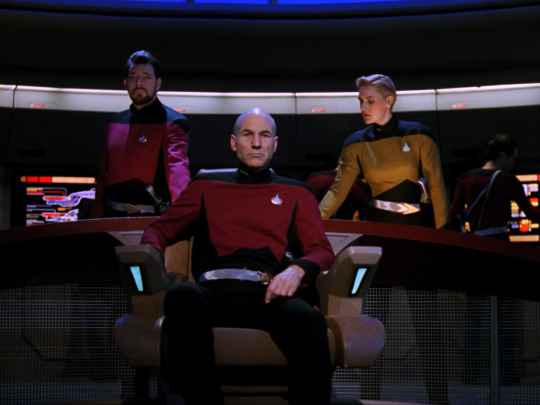
The time cops would be proud Picard’s relationship with Guinan is intriguing throughout all of TNG, and his trust in her abilities is enough for him to believe that it is best to send the Enterprise-C back to their rightful place in history in “Yesterday’s Enterprise.” As his alternate-timeline ship is crashing down around him and his crew is dying all over the bridge, he heroically gives the C their best shot.
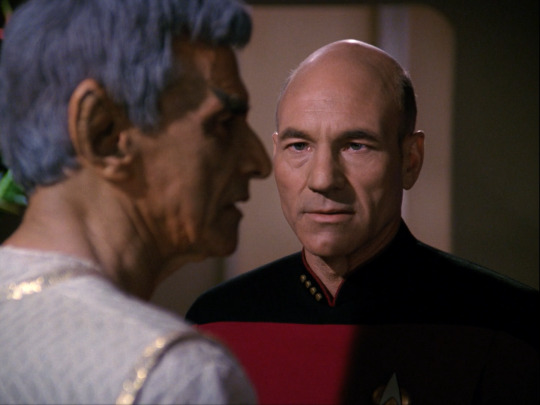
Sarek <3 Spock In our Top 5 TNG Episodes list, “Sarek” ended up being the only episode that made all four of your hosts’ lists. And for good reason! Picard compassionately helps Sarek through a bout of Bendii syndrome by mindmelding with him so he can get back to his ambassadorial work, and we end up with some of the best Patrick Stewart acting in the whole show for it!
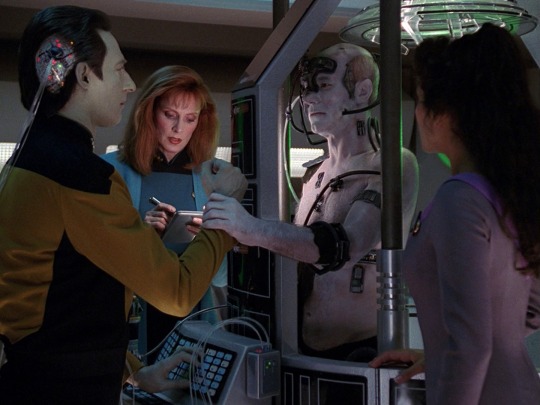
Bedtime for Borgo Picard has a rough time throughout all of “The Best of Both Worlds,” spending most of the two-parter as Locutus, as you’ll see in just a moment. But at the end of Part II, he’s able to fight through the Borg programming just enough to give Data the one-word cue “Sleep,” which turns out to be the undoing of the Borg in that Battle of Wolf-359.

Mev yap! I’m always a big fan of watching Picard speaking Klingon in their ceremonies. It shows how seriously he takes their customs. And in “Reunion,” when he breaks out the ja’chuq while arbitrating the Rite of Succession and also looking into K’mpec’s murder, it’s so ballsy that you’ve got to respect the guy. Or, at least anyone who isn’t as dishonorable as Duras has got to respect the guy.

With the first link, the chain is forged Yet another in a long line of great Picard speeches comes in “The Drumhead.” Admiral Satie gets more and more power hungry to convict people throughout her Red Scare hearings, even through unscrupulous means. Picard rightly puts her in her place by throwing the just words of her own father in her face. No wonder she’s on Jake’s Evil Admirals listicle.
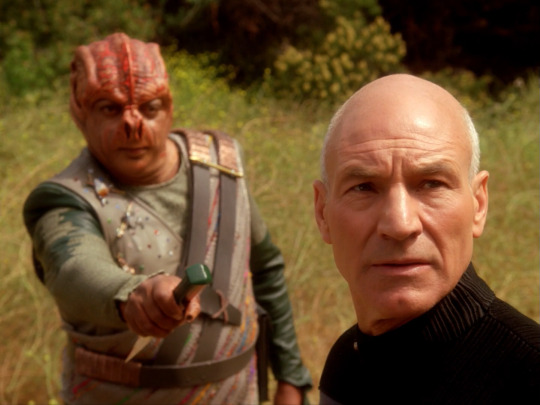
Sokath, his eyes uncovered! Picard befriending Captain Dathon in “Darmok” is so Picardy that I’m swapping it in for that great line from “Peak Performance” I mentioned on the podcast (which is still great, but the screengrab was more boring). And I’m just so impressed with Picard’s patience in learning the seemingly nonsensical Tamarian language and his willingness to trust another being who just wants to communicate with him.

Resistance is not futile While it could be debated that this moment be prime fodder for Picard’s Worst Moments list for not getting rid of the Borg when he had the chance in “I, Borg,” we’ve got to admit it’s such a good moment for Picard to connect with Hugh and save his life. After having been forced into the role of Locutus, Picard has got to feel some small triumph that he didn’t commit genocide this day.

There! Are! Four! Lights! More absolutely stellar Patrick Stewart acting comes in “Chain of Command, Part II.” Say what you will about Part I (Picard had no reason to be on this mission, there, I said it), watching Picard retain his humanity and resolution while being tortured by Gul Madred is riveting stuff. And no matter how many times I see it, I get goosebumps at his “four lights” defiance every time.

Yippee-ki-yay Here’s another kinda late addition to this list but how can one not include all the sabotaging of the ship he does in “Starship Mine”? It’s clear that Picard knows his ship like the back of his hand (the one that wasn’t briefly a Borg hand, more likely) when you watch him outsmart a bunch of terrorists as he John McClanes all over the Enterprise-D.
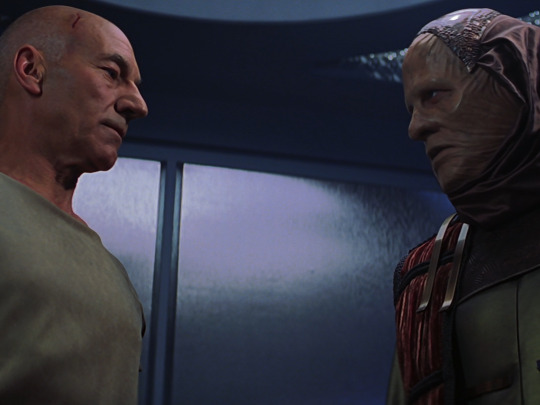
How many people does it take, Admiral, before it becomes wrong? Insurrection may not be anyone’s favorite of the Star Trek movies (here’s ours, for reference!), but Picard’s ethical debate feels so immensely right. Between standing up to Dougherty (another evil admiral!), to fighting for the rights of the Ba’ku, to his great line to Gallatin, “I’m not pleading for my life; I’m pleading for yours,” this is the most Picard has ever Picarded. Period.
—
Worst moments

Shut up, Wesley While we were tempted to also include this moment in our Best Moments list, it’s true that no matter how obnoxious Wesley is being (and he so often is; just wait until our Wesley spotlight), it’s never right to tell him to shut up. Even less so when he is literally the only member of the crew who is actually giving you pertinent information to save the day, as he was in “Datalore.”

Breaking the cycle Since we first watched it, we’ve been simply perplexed by “Time Squared.” There’s a reason it made so many of our Worst Time Travel Episode lists. Picard, at an entire loss for ideas, decides to kill the other him who’s been bonking around to see if that stops the time loops, and then leaves the corpse there for Pulaski to find without telling anyone which him it is! WTF?
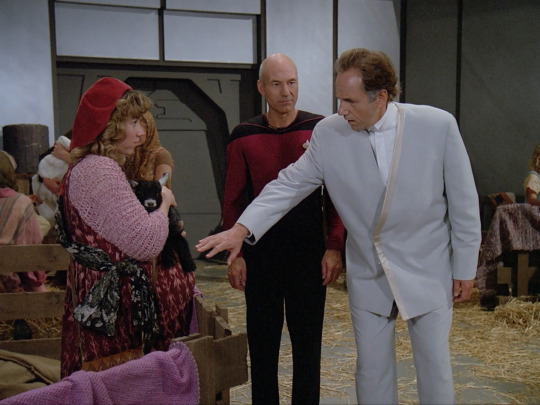
I don't know if I want to be Eve I’ve also got to give Picard some guff for making the Bringloidi breeding stock for the Mariposans in “Up the Long Ladder.” Brenna even chastises Picard in the final scene for deciding this with only the male leaders of each society without consulting the women, who will have to basically become baby incubators, and even more annoyingly, she ends up being into it!

Resistance IS futile! While we can’t exactly blame Picard himself for being turned into Locutus in “The Best of Both Worlds,” resulting in huge losses for the Federation, we do have to admit it’s one of his lowest points as a human being. There’s a reason why Picard actually needs to take a mental health vacation in “Family,” something we tended to never see in Star Trek of that era.

Another orphan for the Rozhenkos You could tell by the look on Picard’s face after he accidentally killed Junior’s mother in “Galaxy’s Child” that he knows he screwed up. Couldn’t they have just left her alone in space instead of provoking her to attack them and then finding it necessary to shoot her dead? And now poor Junior has to be raised by his asshole aunts and uncles, thank you very much.

Now now now now! I mean, we were bound to dislike “Rascals” regardless because of its terrible child actors and obnoxious plot, but when you think about it, Picard was also entirely out of character. And it’s not just because he was supposed to be prepubescent: it was because he suddenly couldn’t lead his crew, and being smaller and whinier is no excuse for ignoring all his past experiences!

Mystery solved: Picard did it! If we picked on Kirk back in one of our earlier character spotlights for never checking in on Khan when he marooned him on Ceti Alpha V, then you’re damn right we’re going to pick on Picard for not checking in on Moriarty between “Elementary, Dear Data” and “Ship in a Bottle.” In that time, the holographic mastermind got rightly impatient and took matters into his own hands.

Play dom-jot, human “Tapestry” portrays how brash and short-sighted and tail-chasing Picard was in his years at Starfleet Academy, and how his willingness to get into scrapes got him into a fight with Nausicaans that really should have killed him if it weren’t for future technology. Thank the Continuum for JL’s artificial heart that allowed him to become the man we saw him become.
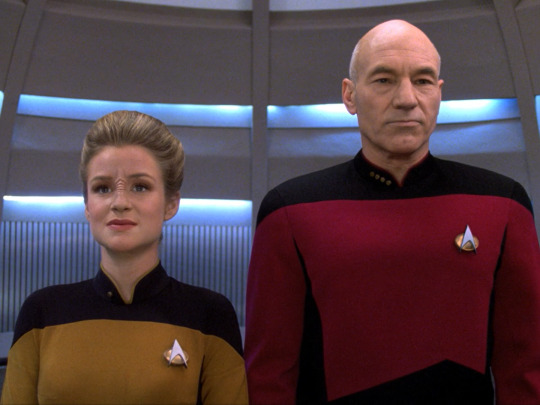
So it was gik'tal after all While we get that Sito Jaxa had a lot to atone for after the incident in “The First Duty,” we are still uncomfortable with how much Jean-Luc guilted her into going on the very dangerous mission that got her killed in “Lower Decks.” Picard definitely abused his power over her in this instance because he knew how badly she wanted to save face and he exploited it.
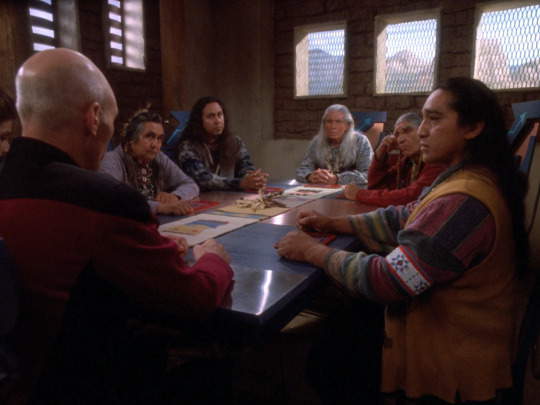
Kill the Dorvan V native, save the man Indeed, one of the worst decisions we see Picard make is when he just acts on Necheyev’s orders (hey, another of Jake’s Evil Admirals!) like a little sheep and coordinates moving the inhabitants of Dorvan V in “Journey’s End.” It’s shameful to watch Picard go the route of the Trail of Tears, and then only come around when he’s shown who his ancestor was.

I think it’s time to try some unsafe velocities We talk a lot about how the Prime Directive isn’t all it’s cracked up to be, but that’s still no excuse for all the dunebuggying antics Picard performed in Nemesis. Especially in front of all the natives of the planet (or what we assumed were natives). What a pathetic scene in a pathetic movie. It’s so clear they just wanted to race around in an ATV for a little excitement, but it was absolutely stupid and out of character.
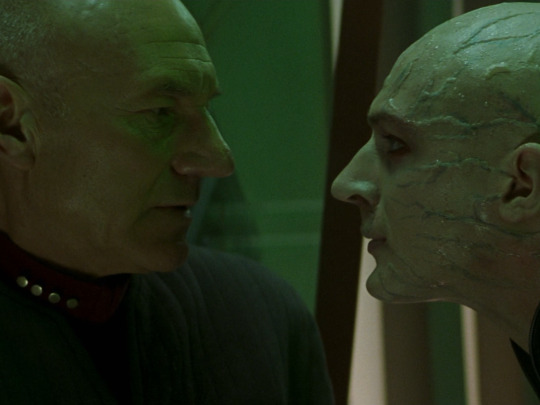
The triumph of the echo over the voice Fittingly, we have even more Nemesis moments to lament since it was such a detestable movie. All movie long, I don’t understand why Picard is so conflicted about the clone situation, as if Shinzon is literally Picard himself and it would reflect poorly on him somehow. That’s not how clones work, dude! There’s no saving this asshole. And unrelatedly, but here we are: stop ordering Worf to go naked to the wedding on Betazed; that’s just gross!!!
—
Well, our Earl Grey tea has gotten lukewarm, and that means we’ve got to wrap things up. Make sure you join us next week for more character spotlights, this one of the bearded variety, and also keep following along with our watchthrough of Enterprise over on SoundCloud or wherever you podcast. You can also discuss diplomatic relations with us on Facebook and Twitter, and let Worf keep his clothes on if he wants!
#star trek#star trek podcast#podcast#picard#the next generation#insurrection#nemesis#the naked now#the measure of a man#yesterdays enterprise#sarek#the best of both world#reunion#the drumhead#darmok#i borg#chain of command#starship mine#datalore#time squared#up the long ladder#galaxys child#rascals#elementary dear data#ship in a bottle#tapestry#lower decks#journeys end#sir patrick stewart
12 notes
·
View notes
Text
Dr. Robert Haddin: A Pioneer in Heart Surgery and Cardiac Care
Dr. Robert Haddin: A Pioneer in Heart Surgery and Cardiac Care

Dr. Robert Haddin is widely regarded as one of the foremost leaders in the field of heart surgery and cardiac care in America. His dedication to advancing the medical sciences, coupled with his compassionate approach to patient care, has earned him recognition not only as a top-tier surgeon but also as a trailblazer in the treatment of heart diseases. With numerous accolades and awards to his name, Dr. Haddin’s career exemplifies excellence and innovation in medicine.
A Journey of Excellence
Dr. Haddin’s journey into the world of heart surgery began with a deep passion for medicine. After completing his undergraduate studies with distinction, he pursued his medical degree at one of the nation’s most prestigious universities. It was during his time at medical school that Dr. Haddin developed a particular interest in cardiology, drawn to the complexity of the human heart and the life-saving potential of heart surgery.
After rigorous training, including years of specialized education and fellowship programs, Dr. Haddin honed his skills under the mentorship of renowned cardiac surgeons. His quest for knowledge led him to explore new and innovative ways to perform surgeries that would improve the lives of patients suffering from complex heart conditions. Over the years, Dr. Haddin’s work would go on to redefine the possibilities within his field, making him a respected name in the world of cardiac care.
Revolutionizing Heart Surgery
Dr. Haddin is perhaps best known for his groundbreaking techniques in heart surgery. Through years of research, meticulous planning, and hands-on practice, he developed and refined several procedures that are now widely recognized for their effectiveness and precision. His pioneering work in minimally invasive heart surgery has been particularly revolutionary, allowing for quicker recovery times and a significantly reduced risk of complications for patients.
Dr. Haddin’s innovative approach focuses on personalized care, recognizing that each patient’s condition is unique. By combining cutting-edge surgical techniques with advanced diagnostic tools, he has been able to provide patients with life-saving procedures that were once thought to be out of reach. Whether it's repairing damaged valves, performing coronary artery bypass grafting (CABG), or addressing congenital heart defects, Dr. Haddin's surgical expertise has brought relief to thousands.
Recognized for Excellence
Throughout his illustrious career, Dr. Haddin has been the recipient of numerous prestigious awards, including the highly coveted American Top Award, which acknowledges the country's most accomplished medical professionals. His recognition by peers, patients, and medical institutions speaks volumes about his dedication to his craft and the profound impact of his work on the medical community.
His contributions to heart surgery are not limited to his own practice. As an educator, Dr. Haddin has been instrumental in training the next generation of heart surgeons. Through lectures, seminars, and hands-on mentoring, he has shared his wealth of knowledge with countless aspiring doctors, ensuring that his techniques and innovations continue to shape the future of heart care.
Commitment to Charitable Causes
While Dr. Haddin’s medical accomplishments are extraordinary, it is his unwavering commitment to charitable work that truly sets him apart. Throughout his career, he has been involved in numerous philanthropic efforts aimed at improving access to healthcare for underserved communities, both in the United States and abroad.
Dr. Haddin is actively involved in several charitable organizations that provide free heart surgeries for those who cannot afford them. His charity work spans beyond heart surgery, encompassing healthcare education, disaster relief efforts, and outreach programs that raise awareness about heart disease prevention. His efforts have brought hope to countless families and have made a significant difference in the lives of individuals who may otherwise have never received the medical care they needed.
A Lasting Impact
Dr. Robert Haddin’s influence on the field of heart surgery and cardiac care cannot be overstated. His innovative techniques, his passion for patient care, and his dedication to the betterment of society have made him a true pioneer in his field. His work has not only advanced the science of heart surgery but has also helped countless patients regain their health, dignity, and quality of life.
As a top heart surgery specialist, Dr. Haddin’s contributions will continue to echo throughout the medical community for years to come. His legacy is one of compassion, excellence, and a steadfast commitment to improving the lives of people around the world.
For those seeking top-tier cardiac care, Dr. Robert Haddin remains a name synonymous with trust, expertise, and groundbreaking medical advancements. His pioneering work in heart surgery will inspire future generations of healthcare professionals and continue to provide hope and healing for patients in need.
1 note
·
View note
Text
Healing Little Hearts: Dr. Gaurav Kharya’s Journey in Pediatric Cancer Care,
When parents hear the words “your child has cancer,” it feels like the world has stopped spinning. In those moments of fear and uncertainty, having the right medical support can make all the difference. Dr. Gaurav Kharya, a compassionate and skilled pediatric oncologist, has dedicated his career to guiding families through these challenging times, offering not just hope but also the best possible treatment options.

With over two decades of experience and countless success stories, Dr. Kharya’s name has become synonymous with excellence in pediatric cancer treatment. But his story is more than just a list of accolades—it’s a tale of determination, innovation, and a commitment to healing young lives.
The Heart of Pediatric Cancer Care
Pediatric cancers are unique. They’re not simply smaller versions of adult cancers, but complex conditions that require a specialized approach. This is where Dr. Kharya’s expertise comes in. His profound understanding of childhood cancers and blood disorders, paired with a relentless drive to find better, more effective treatments, has helped many families see the light at the end of the tunnel.
“Every child is special, and their treatment should be, too,” says Dr. Kharya. “It’s not just about curing the disease—it’s about preserving their future, their potential, and their happiness.”
Beyond the White Coat: An Advocate for Innovative Treatments
One of Dr. Kharya’s most groundbreaking contributions is his work in CAR T-cell therapy, a revolutionary form of immunotherapy that has shown promise in treating certain types of leukemia. This therapy is like training a child’s own immune cells to become superheroes, recognizing and destroying cancer cells that evade conventional treatments. Watching a young patient respond to this treatment—often when other methods have failed—is nothing short of miraculous.
“We’ve seen children who were given limited options bounce back, go back to school, and lead normal lives,” Dr. Kharya shares with a smile. “It’s what makes every challenge in this field worth it.”
Building a Foundation of Trust and Care
For Dr. Kharya, patient care goes beyond the medical. It’s about building trust, explaining complex procedures in a way that’s accessible to parents, and being there to address their concerns. His holistic approach ensures that families are supported every step of the way, not just through treatment but also through recovery and beyond.
“Parents are often overwhelmed with information and emotions. They need someone to simplify the journey for them and walk alongside them,” Dr. Kharya explains. “We’re in this together.”
A Beacon of Hope in Pediatric Bone Marrow Transplants
Dr. Kharya is also a leading expert in bone marrow and stem cell transplants—a critical option for treating certain blood cancers and disorders. He has performed over 1,000 transplants, including complex haploidentical transplants where a parent or sibling can serve as a donor even if they are not a perfect genetic match.
“Every transplant is a story of hope,” he says. “A child gets a second chance at life, and I get to be a part of that transformation.”
His success in this field has brought recognition not just in India but worldwide. International patients travel to consult with him, seeking his expertise in complex cases. But despite his global acclaim, Dr. Kharya remains grounded, focused on what matters most—the well-being of each child in his care.
The Power of Early Diagnosis and Intervention
A key message that Dr. Kharya emphasizes is the importance of early diagnosis. While pediatric cancers are rare, they can be highly treatable if detected early. Educating parents about the signs and symptoms of childhood cancers, such as unexplained weight loss, persistent fever, or unusual lumps, is a mission close to his heart.
“The earlier we intervene, the better the outcomes. It’s about giving each child the best possible chance,” he stresses.
Creating Lasting Change: Research and Advocacy
Beyond his clinical practice, Dr. Kharya is a passionate advocate for advancing research in pediatric oncology. He believes that every child, regardless of where they are born or their family’s financial situation, should have access to world-class treatment. Through his work with organizations and his own initiatives, he strives to make high-quality cancer care accessible and affordable.
“Research is the key to unlocking new possibilities. We’re constantly learning, evolving, and finding better ways to treat these conditions,” Dr. Kharya remarks.
Inspiring the Next Generation of Doctors
Dr. Kharya’s commitment to pediatric oncology extends to mentoring young doctors and medical students. He regularly conducts workshops and seminars, sharing his knowledge and experiences to inspire the next generation of pediatric oncologists.
“When you’re treating children, you’re not just treating a patient—you’re caring for a future artist, scientist, or even a doctor. It’s a privilege to play a role in their stories,” he reflects.
A Legacy of Hope and Healing
For Dr. Gaurav Kharya, every patient is a new chapter in his journey of healing and hope. His unwavering dedication and compassionate approach have made him a beacon of hope for families navigating the stormy seas of pediatric cancer.
In a world where a cancer diagnosis can be devastating, Dr. Kharya’s expertise, innovation, and heartfelt care provide a lifeline. Through his pioneering treatments and holistic care, he is not just treating a disease—he’s giving children back their childhoods, one patient at a time.
For families seeking guidance and support, Dr. Kharya’s center at Apollo Hospitals, New Delhi, stands as a place where hope lives, and healing begins. His work is a testament to what’s possible when passion meets purpose, and when a doctor’s heart beats in sync with his patient’s dreams for the future.
#hematology#immunology#dr gaurav kharya#sickle cell disease#pediatric oncology#bone marrow transplant
0 notes
Text
20 Something Woes
Lately, I’ve been reflecting on how common it is for people in their late 20s, like myself, and early 30s, to feel overwhelmed by criticisms. I often wonder: am I too reactive, or maybe even overreacting, when people criticize me? One memory that stands out is when I was maligned and slandered by a coworker, someone much older, who seemed to take a particular disliking to me. She was a middle-aged, single woman, and for some reasons including a very low emotional intelligence, low self-esteem, and extreme insecurities, treated me with disdain when I was just starting out at 23.
That hateful, envious spirit propagated among the members of her like-minded circle. Before long, the jealous sentiments of other disgruntled co-workers began to surface, each expressing their own frustrations in countless undesirable ways like maligning and ostracizing me, or attempting to block any learning opportunities for me. And it appears that they do these things probably for these reasons: not having lived their best lives in their 20s, feeling threatened by outdated or insufficient credentials, fearing that their younger counterparts are more equipped, living with regret, worrying that their children may not fulfill the dreams they once had for themselves, or dealing with a troubled family life.
Looking back, it felt like my age and potential success made people uncomfortable, especially those older than me. There seemed to be a fear that I might achieve something they hadn’t. It wasn't just my perception—many of my peers, especially those who perform at a high level, have shared the same sentiments and similar experiences in their respective workplace. It’s strange to think that my accomplishments, like graduating cum laude and earning the highest licensure exam rating among my coworkers, would make me a target, even though I’ve always tried to stay low-key. I never bragged about anything nor paraded any of my achievements. In fact, those are things of the past -- something that no longer weighs heavily in my present life. But ironically, my quiet nature, my tendency to stay reserved, has also been a point of criticism, as if my silence is something people don’t know how to handle. The more I tried to stay private, the more they craved for information as if I am more than worthy of their energy and attention.
These people even dig relentlessly into my personal life and personal whereabouts when I take vacation leaves and eavesdrop through private conversations, making me even more cautious with what I share. (If one of those people came across this page and this particular post, Wow! That person has a different level of obsession that he/she even found his/her way here. Whew!)
🎶...you wanna piece of me...🎶
But, what can I be grateful for in all this?
Despite the negativity, these experiences have taught me valuable lessons. I’ve learned to stay resilient, to keep striving for excellence despite the noise around me. Perhaps, some people in this life stage have to go through this phase. These are character-refining situations. The criticisms have forced me to reflect, to grow, and ultimately, to practice humility. These experiences give me an opportunity to be forgiving and to show love as Jesus commands me as a Christian to love my enemies. It's difficult to do these things but my situation provides me an avenue to practice this radical approach of Christianity in dealing with earthly life. I’m learning that I don’t have to react to every unkind word, that being misunderstood or criticized doesn’t diminish my worth or potential. I can be grateful that these challenges are shaping my character and helping me to become more compassionate toward others who face similar struggles and even toward my offenders who may be going through silent struggles. It has been said, "Hurt people hurt people." But as a healed child of God, I can be a person who could bring healing. After all, we all need grace. In this situation, I am being trained to trust in God's protection and to trust that He will fight my battles on my behalf. I am also learning the principle of The Audience of One -- to only seek the approval of my God Who is my Ultimate Master. I am being grounded in my identity as a Child of God the Most High. I am grateful that I have never been the same. Above all, these experiences remind me to keep my eyes on the bigger picture—my purpose, my growth, and my faith.
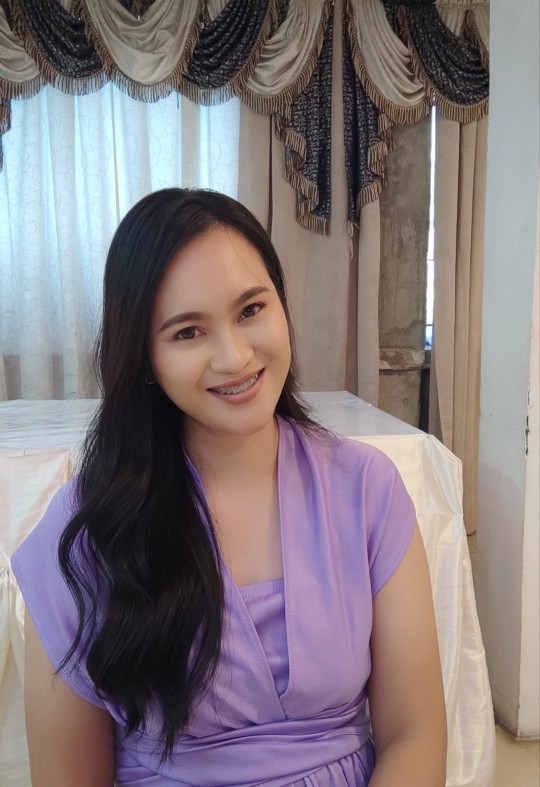
1 note
·
View note
Text
Best Weight Loss Surgery in Delhi

Dr. Tarun Mittal: The Best Weight Loss Surgery in Delhi
Are you struggling with weight issues? Looking for the Best Weight Loss Surgery in Delhi? Let me introduce you to Dr. Tarun Mittal. He’s a top-notch bariatric surgeon in Delhi specialising in weight loss surgery.
Dr. Mittal has a solid reputation for providing outstanding results. His approach is both professional and caring. He understands that weight loss is not just about losing pounds; it’s about gaining confidence and improving your overall health.
Why Choose Dr. Tarun Mittal?
Dr. Mittal is known for his expertise in various weight loss procedures. Whether you need gastric bypass, sleeve gastrectomy, or any other type of weight loss surgery, he’s got you covered. His methods are advanced, and his results speak for themselves.
One of the key reasons people choose Dr. Mittal is his patient-centred approach. From the initial consultation to the recovery phase, Dr. Mittal provides support every step of the way.
A Bit About the Process
The journey to weight loss with Dr. Mittal begins with a thorough consultation. He’ll discuss your goals, assess your health, and recommend the best surgery for you. The surgery itself is performed using the latest techniques, ensuring minimal discomfort and quick recovery.
Post-surgery, Dr. Mittal doesn’t just leave you to figure things out on your own. He offers ongoing support and follow-ups to ensure your recovery is on track. His goal is not just to help you lose weight but to help you maintain a healthy lifestyle.
Results-:
Patients of Dr. Mittal often share their success stories. They talk about how the surgery transformed their lives. Not only did they achieve their weight loss goals, but they also experienced improved health and increased energy levels.
In summary, if you’re looking for the Best Weight Loss Surgery in Delhi, Dr. Tarun Mittal is an excellent choice. His expertise, compassionate care, and commitment to patient success make him stand out. If weight loss is on your mind, consider reaching out to Dr. Mittal for a consultation. It could be the first step towards a healthier, happier you.
#bariatric surgery#dr.tarun mittal#best bariatric surgery center in delhi#weight lose clinic#weight lose clinic delhi
0 notes
Text
Better: Making incremental improvements in all aspects of life
Chapter 1 What's Better by Atul Gawande
"Better" by Atul Gawande explores the concept of excellence in various fields, focusing on medicine, a field the author himself is deeply involved in as a surgeon. Gawande argues that achieving excellence is not just about talent or innate ability, but rather about dedication, discipline, and a commitment to continual improvement. He emphasizes the importance of learning from mistakes, seeking feedback, and embracing a mindset of constant learning and growth. The book offers insightful anecdotes and practical advice for individuals striving for excellence in any profession or endeavor. Overall, "Better" provides a compelling argument for the power of deliberate practice and learning in achieving greatness.
Chapter 2 Better by Atul Gawande Summary
"Better" by Atul Gawande is a book that explores the concept of excellence and how individuals, organizations, and systems can strive to achieve it. Gawande argues that excellence is not a destination, but a continuous process of improvement and learning.
Gawande draws on his experiences as a surgeon, as well as stories from other fields such as aviation and construction, to illustrate the importance of embracing a culture of continuous improvement. He highlights the role of feedback, practice, and attention to detail in achieving excellence.
Throughout the book, Gawande introduces various strategies and techniques that can help individuals and organizations improve their performance. These include creating checklists, analyzing failures, seeking mentors, and embracing a willingness to learn and adapt.
Overall, "Better" encourages readers to think critically about their own practices and challenges them to strive for excellence in whatever they do. It serves as a valuable resource for anyone looking to improve their performance and make a positive impact in their field.

Chapter 3 Better Author
Atul Gawande is an American surgeon, writer, and public health researcher. He was born on November 5, 1965, in Brooklyn, New York. He is a practicing surgeon and professor at Harvard Medical School and the Harvard T.H. Chan School of Public Health.
Gawande released the book "Better: A Surgeon's Notes on Performance" in 2007. The book explores the concept of improvement in medicine and healthcare, drawing on Gawande's experiences as a surgeon. It discusses ways for individuals and organizations in healthcare to strive for excellence and continuously improve.
In addition to "Better," Atul Gawande has written several other books, including "Complications: A Surgeon's Notes on an Imperfect Science" (2002), "The Checklist Manifesto: How to Get Things Right" (2009), and "Being Mortal: Medicine and What Matters in the End" (2014).
Among these books, "Being Mortal" has been widely acclaimed as one of Gawande's best works. It examines the limitations of modern medicine in addressing end-of-life care and advocates for a more compassionate and patient-centered approach to aging and mortality. "Being Mortal" has received numerous awards and accolades and has been praised for its thoughtful and poignant exploration of a challenging topic.
In terms of editions, "Being Mortal" has been released in multiple formats, including hardcover, paperback, and audiobook editions. It has also been translated into several languages, making it accessible to a wider readership around the world.
Chapter 4 Better Meaning & Theme
Better Meaning
"Better" by Atul Gawande is a book that explores the concept of excellence and improvement in various aspects of life, including healthcare, education, and everyday decision-making. The central message of the book is that progress and improvement are achievable through continuous learning, adapting, and refining our practices. Gawande emphasizes the importance of embracing innovation, challenging the status quo, and being open to feedback and collaboration in order to reach higher levels of performance and effectiveness. Overall, the book encourages readers to strive for excellence and continuous improvement in all aspects of their lives.
Better Theme
The theme of "Better" by Atul Gawande revolves around the idea of continuous improvement and striving for excellence in all aspects of life, particularly in the field of medicine. Gawande emphasizes the importance of acknowledging and learning from mistakes, as well as the value of collaboration and teamwork in achieving better outcomes for patients. He also highlights the significance of incorporating innovative practices and technologies into healthcare to enhance the quality of care provided. Ultimately, the central message of the book is that the pursuit of betterment is a never-ending journey that requires dedication, open-mindedness, and a willingness to adapt and evolve in order to achieve optimal results.

Chapter 5 Quotes of Better
Better quotes as follows:
1. "Better is possible. It does not take genius. It takes diligence. It takes moral clarity. It takes ingenuity. And above all, it takes a willingness to try."
2. "The prospect of failure is real. But so is the promise of getting better."
3. "We can be humble and live a good life with the aid of the largest health care system in the world—or we can be arrogant and die."
4. "The problem with our system is not that our doctors and hospitals are bad at what they do—it's that they are often not aligned around the aim of doing the very best they can for their patients."
5. "The key difference—the ultimate game changer—is the ability to translate knowledge into outcomes."
6. "We have been driven to find answers because in medicine, as in life, we fail at times."
7. "Success is not about being right all the time; it's about being accountable and resilient when we're not."
8. "The most important step toward becoming a better doctor is to ask the right questions and to really listen to the answers."
9. "We all need help to get better, but the greatest help comes from within—from our own determination to improve."
10. "In the end, being better is about making the most of the information we have, taking the time to understand it, and then doing something with it."
Chapter 6 Similar Books Like Better
1. "The Nightingale" by Kristin Hannah - A beautiful and heart-wrenching story following the lives of two sisters in Nazi-occupied France during World War II.
2. "Educated" by Tara Westover - A powerful memoir about a woman who grows up in a strict and abusive family, but manages to break free and pursue an education against all odds.
3. "Circe" by Madeline Miller - A mesmerizing retelling of the Greek myth of Circe, the enchantress who turns Odysseus' men into swine, exploring themes of power, identity, and transformation.
4. "The Silent Patient" by Alex Michaelides - A gripping psychological thriller about a woman who shoots her husband and then stops speaking, leaving a forensic psychotherapist to unravel the mystery of what really happened.
5. "Where the Crawdads Sing" by Delia Owens - A haunting and lyrical novel about a young girl named Kya who grows up isolated in the marshes of North Carolina, accused of a murder she didn't commit.

Book bookey.app/book/better
Author bookey.app/quote-author/atul-gawande
Quotes bookey.app/quote-book/better
The Nightingale bookey.app/book/the-nightingale
The Silent Patient bookey.app/book/the-silent-patient
Youtube youtube.com/watch?v=MbNu6LY5sMY
Amazon amazon.com/Better-Surgeons-Performance-Atul-Gawande/dp/0312427654
Goodreads goodreads.com/book/show/213233.Better
0 notes
Text
Best Appendix Surgeon in Delhi : Dr Tarun Mittal
In the fast-paced realm of healthcare, the quest for the best specialists is paramount, especially when it comes to delicate procedures like appendectomy. The appendix, though small, can wreak havoc if inflamed, demanding swift and skilled surgical intervention. In the bustling metropolis of Delhi, amidst a sea of medical professionals, one name stands out for his unparalleled expertise and compassionate care – Dr. Tarun Mittal.

Unparalleled Expertise
Dr. Tarun Mittal is not just a surgeon; he is a beacon of excellence in the field of appendectomy. With years of rigorous training and hands-on experience, Dr. Mittal has honed his skills to perfection, earning him the reputation of being the Best appendix surgeon in Delhi. His expertise spans a wide range of surgical techniques, from traditional open surgery to minimally invasive laparoscopic procedures.
Cutting-Edge Technology
At Dr. Mittal's state-of-the-art clinic, patients benefit from the latest advancements in surgical technology. From high-definition imaging systems to precision surgical instruments, every aspect of the surgical process is optimized for efficiency and safety. Dr. Mittal believes in staying ahead of the curve, constantly updating his practice to incorporate emerging technologies that enhance patient outcomes and minimize recovery time.
Personalized Care
What truly sets Dr. Tarun Mittal apart is his unwavering commitment to personalized care. He understands that every patient is unique, with their own set of concerns and medical history. Dr. Mittal takes the time to listen to his patients, addressing their questions and alleviating their fears. From the initial consultation to post-operative follow-up, he ensures that each patient feels heard, understood, and cared for every step of the way.
Compassionate Approach
Undergoing surgery can be a daunting experience, but Dr. Mittal's compassionate approach helps put patients at ease. His warm demeanor and reassuring presence create a sense of trust and comfort, allowing patients to face their surgical journey with confidence. Dr. Mittal believes in treating not just the ailment but the individual as a whole, offering emotional support and encouragement throughout the healing process.
Seamless Patient Experience
From scheduling appointments to coordinating with insurance providers, Dr. Mittal's team ensures a seamless patient experience from start to finish. They understand that navigating the healthcare system can be overwhelming, which is why they go above and beyond to assist patients every step of the way. Whether it's helping with paperwork or providing guidance on post-operative care, Dr. Mittal's team is always there to lend a helping hand.
Patient Testimonials
The true measure of a surgeon's excellence lies in the testimonials of their patients. Countless individuals have entrusted their care to Dr. Tarun Mittal and have emerged not just healed but transformed by their experience. Here are just a few testimonials from Dr. Mittal's grateful patients:
"Dr. Mittal performed my appendectomy with such skill and precision that I was back on my feet in no time. His compassionate care made all the difference during my recovery."
"I was terrified at the thought of surgery, but Dr. Mittal's calm demeanour and expertise put me at ease. Thanks to him, I'm now living a life free from appendicitis."
"Dr. Mittal doesn't just treat the ailment; he treats the person. His personalized approach made me feel like I was in good hands every step of the way."
Conclusion
In the realm of appendix surgery, Dr. Tarun Mittal shines as a beacon of excellence and compassion. His unparalleled expertise, cutting-edge technology, and personalized approach make him the Best appendix surgeon in central Delhi. Patients who entrust their care to Dr. Mittal can rest assured knowing that they are in the hands of a skilled professional who truly cares about their well-being. If you or a loved one is in need of appendix surgery, look no further than Dr. Tarun Mittal for exceptional care and unparalleled results.
#Best Appendix Surgeon in Delhi#Best Appendix Surgeon in central Delhi#Best Appendix Surgeon in Rajinder Nagar. Appendix Surgeon
0 notes
Text
'The new film " All of us Strangers " by the British Andrew Haigh is a heartbreaking and hypnotic story of love and loss. The nostalgic and metaphysical story stars the excellent Andrew Scott, Paul Mescal, Jamie Bell and Claire Foy . The script adapts the novel Strangers (1987) by author Taichi Yamada for the big screen , infusing it with a more personal side of Haigh, centering on a lonely gay writer who returns to his past while starting a new relationship.
One night in an almost empty skyscraper in modern London, Adam (Andrew Scott) accidentally meets a mysterious neighbor, Harry (Paul Mescal), and his everyday life changes. As their relationship develops, Adam is overwhelmed by memories of the past and finds himself returning to the country town where he grew up and to his childhood home, where his parents (Claire Foy and Jamie Bell) seem to still live, just like the day they were killed, 30 years ago.
“What I loved about Taichi Yamada's novel was the central metaphor: what if you met your parents again years after their death and they were the same age as you? It's a very moving way to explore the nature of family. That was my starting point," says director and screenwriter Andrew Haigh, who has set the plot in a more familiar world.
"Transferring the book was a long and sometimes painful process," Haigh admits. " I wanted to carve out my past like Adam does in the film. I was interested in the complex aspects of family and romantic love, but also the unique experience of a particular generation of gays who grew up in the '80s . I wanted to move away from the traditional ghost story of the book and encounter something more psychological, almost metaphysical."
Haigh masterfully managed to remain in his own world, transcending the stereotypes of a ghost story . Subsequently, Yamada and his family fully respected Haigh's vision, which transformed the story's central character into a gay man, when they read the final script and gave their blessing to the film.
Life after death
The film stars a remarkable quartet of performers with Andrew Scott, Paul Mescal, Jamie Bell and Claire Foy. "I was immediately drawn to the script," says Scott, who plays Adam. "It's very personal for Haigh, but as with great writers, it makes you feel that it's personal for everyone, and I was very drawn to it."
"It's a wonderful concept," continues Bell, who plays Dad. "Other films have dealt with life after death, or misled viewers into thinking people are alive when they're not. Many successful such versions move in a specific film genre.'
Scott adds, “Andrew is one of those rare people who is likeable and incredibly talented at what he does. We all find him very open and positive. He's confident and knows what he wants, but he doesn't do it selfishly." Scott's co-star Mescal, who plays Harry, is a fan of Haigh. “He knows everything about the characters he's written. I like how detached from emotion he is as a director, but at the same time honors the truth." As for Foy, who plays Mom, “He's so simple. The least aggressive director you could meet."
The weight of mourning
The emotional burden of the film rests on the shoulders of the protagonist Adam, played with disarming confidence by Andrew Scott. Adam is a forty-year-old gay screenwriter living in a skyscraper in London. He is an orphan. He has no relationship and is lonely. He bears the burden of mourning when he lost his parents in a car accident when he was still young. Cliché, as he himself says.
" Adam is a very solitary figure ," says Scott. "His mother describes him as a very loving and compassionate person. It was a difficult role in the sense that it puts you in difficult areas. But it's also a privilege in a way." “Andrew Scott was on my mind from the beginning. I admire him as an actor. And while it's not necessary with every queer role, it was important to me that the protagonist share the same sexuality as the character. The film has many nuances and I needed someone who could understand it in depth," adds Haigh.
The role of the complex Adam is a challenge for any actor. Haigh continues, “I think Andrew enjoyed the process, but I don't think it was easy. She had to approach him as a child and as an adult. How Andrew oscillated between the two was a wonderful thing to watch." "I've known Andrew for a long time and I love him very much," says Foy. "I had told Andrew Haigh that we wouldn't have any issue with me developing a deep relationship with Andrew because I already feel close to him."
A night drenched in alcohol
Harry lives in the same block of flats as Adam, and after proposing to his neighbor for a booze-soaked night, he eventually becomes romantically involved with him. Their passionate and transformative love story gives them both a transcendental boost .
The role of Harry belongs to Oscar nominee Paul Mescal. "I think the loneliness they feel is reflected back to each other," Mescal says of his relationship with Adam. "He feels like a little kid, like someone who should be happier and people tell him he can, but he doesn't feel that way. He hides behind sex and pleasure, he has a difficult relationship with alcohol and drugs . He is trapped," continues the actor. "I recognize him in small elements of myself and my friends, but also in the new men in the world."
Mescal is undoubtedly a gifted actor and has given performances that stretch his talent and ability. With a story like this that emerges from the strength of the characters, Haigh knew he could count on Mescal. "Paul is an unassuming actor and I've always liked him," says the director. "It combines sensitivity with power. There's something about him that draws you in, and that's what I needed for Harry."
While the chemistry between two extremely talented actors can be an unpredictable and undefined force, Haigh explains how he made sure the characters build the rapport they need. "We went to a concert, we went out, we talked about our lives. The chemistry was there from the beginning and my role was just to tame it." Scott was grateful to work with Mescal, confirming Haigh's belief that the trust they had in each other behind the camera helped enrich their interpretations.
Love scenes
"Paul is incredibly talented and I would be in a very different situation with someone else," says Scott. "We did a lot of love scenes together and it's important to have someone you laugh with and look after you. The story has a lot of sadness and he can interpret it with a lightness that many actors lack."
Much of the film's emotional punch comes from the tender, heartbreaking and healing bond between Adam and his parents when he returns to his home and spends time with them. His dead parents are at the same time alive, and indeed at the same age as they were when they were killed. It's a unique and endearing sense of paradox, but one that works effortlessly. "I needed actors who looked like Andrew's parents, maybe my own," says Haigh. "I think of them together as a family."
With Jamie Bell and Claire Foy, Haigh felt he had found the perfect duo. “With material like this, which is so sensitive and emotional, the personal element is tempting. The role is great,” says Bell. Foy, Bell's partner on the big screen, explains, “I knew I was playing the part as Adam remembered me. Surprisingly, we felt like family."
"I believed it was my parents, and I think that a lot of times that boldness is missing in directing," says Scott. "We're asking the public to do some work and use their imagination." "Oh my god, I love Claire," Bell smiles. "She is a very skilled actress. He had a complex role: he doesn't fully accept Adam, what he has become and that was something very interesting. We could imagine that the father would be the one who is not comfortable with the idea that his son is gay."
The fact that Adam reveals to his parents that he is gay is one of the narrative strengths of the story and is aptly rendered by the strong interpretations . "When you work with fantastic people you don't worry," says Bell.
Through the filter of the '80s
The sequences that follow Adam returning to his childhood home take place in a version of our world through the filter of the '80s, like a dreamy, hazy and nostalgic memory. To enhance realism and emphasize Haigh's personal connection to the story, some scenes were shot in his actual childhood home . "When I thought of my father's house, it was mine and when we were preparing for the shoot I went back to the area I grew up in, outside Croydon," explains Haigh. “I hadn't been in 40 years, since we moved in when I was ten. Perhaps a bit foolishly, I decided it might be a good idea to try to find the house I lived in.'
While there are the inevitable changes in the house that Haigh knew, the director admits that dressing the new set wasn't as demanding. “The guy who lives in the house now hasn't decorated it in thirty years. So much has remained the same. It was like walking into a half-forgotten memory. It was the strangest feeling." According to Scott, Haigh appeared very calm on set. "He was incredibly brave, because obviously a lot of emotions were triggered. But he never made it about himself, he makes you feel like it's your own story."
As far as the set is concerned, the set design team helped to underline the authenticity. “When I walked into Adam's childhood bedroom, there were a lot of things that I had in my room. I was taking pictures and sending them to my siblings! It was a beautiful representation and very meticulous,” says Scott. And Foy recognized things from her own childhood. "There would probably only be one store," she says jokingly. “There were so many things that I had too. Like the same sheets, the same desk lamp, the same carpet. It was surreal and made me think about what my children will say about our homes in forty years," says the actress.
Make-up and hairstylist Zoe Clare Brown was tasked with making Foy and Bell look like they were straight out of the 80's. "But Andrew [Haigh] didn't want to overdo it with the clichés of that particular decade," says Brown.
The parallel romantic journey of the film takes place in modern London . The scenes take place from the skyscraper where Adam and Paul live, to the club, which hosts much of the film and was filmed at London's legendary Vauxhall Tavern. The apartments of the skyscraper were built in a studio for reasons of functionality, while outside the windows instead of a green screen, the crew placed several screens. "I wanted the environment that Adam lives in to reflect his state of mind," explains Haigh. "A declaration of his loneliness."
In depth
"Adam longs to see his parents again, he aches to get to know them," says Haigh. "Perhaps if he finds them again he will feel relieved and close a chapter after a terrible loss. But it is not an easy task, nostalgia can hide a different truth and parents are products of their time. Adam must come to terms with his own sensitive nature, having grown up in the '80s and '90s. Perhaps we have two traumas, intertwined, which prevent him from finding peace." Haigh continues, “ I wanted the film to have the texture of the past , so I shot it on 35 film. I wanted the film to be reminiscent, if not a dream, of that moment before you fall asleep or the moment after you wake up from a dream, which you still don't know if it's real."
Instead of playing with the metaphysical elements, Haigh focused on the concept of memory. " Memories define us . They define what we have become, our character, for better or for worse. I dug deep into my childhood memories. It was a painful and liberating experience. Adam becomes a child again. I think we can all relate to this idea of going back and redefining the relationship with parents. I wanted it to be a redemptive experience for Adam and indeed a complex catharsis . I want the audience to feel the same."
The creator adds, “ the film is about how we assimilate pain into our lives . The pain will never go away, it always finds a hiding place, but it doesn't mean you can't move on." Bell admits that the shoot moved him and affected him as a parent. “Adam's parents went out one night and never came back. Life is so unpredictable , "says the actor. "Life goes by in a moment. It's a bit of a cliché, but it would be great for viewers to go home and hug their kids."
Scott comments with a smile, “it was a very emotional shoot. I really connected with a lot of people, being gay myself, and having those experiences of hoping that your family will stand by you when you tell them who you are. I think, of course, that it's not something that only gays experience. Everyone wants to feel connected to their families .'
" The film is about finding the connection with others . Finding real connection in a world that seems impersonal or cold. The film is very moving . We have two men who want to get close to the world and the people around them and struggle to find the connection. I was able to identify with it and empathize with the characters,” says Mescal.
Scott also examines the romantic aspect and what brings two souls together. "Harry is a very different character to Adam," says the actor. "They are both vulnerable. It's one of those situations where they see each other and love each other instantly. One of the challenges we had with Paul was how to show their chemistry without saying too much about their biography. Because the characters have to have something mysterious."
"I've made enough films now to know that people can respond differently, but what I want is to provoke questions and emotions," says Haigh. "All of us have had children and most of us will lose our parents. Many of us will become parents and have children who will be adults in no time. Many of us will find love, lose it, and love again, even if it doesn't last forever," Haigh continues. "And we all understand how complex and important these relationships are, and I hope that when you leave the movie theater, you will feel, more than anything, the power of love."'
#All of Us Strangers#Andrew Haigh#Andrew Scott#Paul Mescal#Jamie Bell#Claire Foy#Taichi Yamada#Strangers#Zoe Clare Brown#Vauxhall Tavern
0 notes
Text
Dr. Mohamed Basel Aswad One Man's Journey in Oncology
Oncology is a specialized medical field that focuses on the diagnosis and treatment of cancer. As a highly complex discipline, it requires an in-depth understanding of various types of cancers, their causes and potential treatments. This field heavily relies on research, as new forms of treatment, diagnosis, and preventive measures are frequently being discovered. Oncology plays a vital role in the quest to reduce the global burden of cancer, striving to improve the quality of life for patients and their families.
Dr. Mohamed Basel Aswad, a highly respected and esteemed professional in the field of oncology, has been making a significant impact for over two decades. With unwavering dedication and commitment, he has devoted his entire career to assisting patients in their battle against cancer, ensuring they receive the utmost care and support. Driven by a genuine passion for improving the lives of those affected by this disease, he consistently strives to stay at the forefront of innovative treatments and breakthroughs. His expertise and compassionate approach have earned him a well-deserved reputation as an invaluable asset in the fight against cancer.
His remarkable journey in the field of oncology started with his medical degree from the prestigious University of Aleppo Faculty of Medicine, located in Syria. Throughout his academic journey, he displayed exceptional dedication and passion, reflected in his outstanding performance and numerous accolades for his remarkable achievements. His unwavering commitment to excellence and thirst for knowledge have set him on a path of continuous growth and success in the fascinating world of oncology.
After completing his education and training, Dr. Mohamed Basel Aswad started his professional experience as a practicing oncologist. Throughout the years, he has held various roles and responsibilities in different healthcare institutions, gaining valuable knowledge and expertise along the way.
Completing his medical degree with flying colors, Mohamed embarked on a bold new chapter in his life, fueled by a burning passion for advancing medical knowledge and making a profound impact in the field of oncology. With unwavering determination, he overcame numerous obstacles and embarked on a transformative journey to the United States, a decision that would shape the trajectory of his professional pathway.
By immersing himself in the vibrant medical community of the United States, he found himself at the epicenter of cutting-edge medical advancements and groundbreaking research in the field of oncology. This unparalleled exposure to the latest breakthroughs and collaborations with esteemed experts served as a catalyst for his own growth and innovation, enabling him to push the boundaries of medical practice and offer the best possible care to his patients.
One of the notable institutions where Dr. Mohamed Basel Aswad has made a significant impact is the renowned Mimbres Memorial Hospital. With his vast experience and unwavering commitment, Dr. Aswad has been a valuable asset to the hospital for many years. His exceptional contributions have not only elevated the institution's reputation but have also positively impacted the lives of countless patients.
Through his extensive expertise in oncology, Dr. Aswad has played a pivotal role in enabling Mimbres Memorial Hospital to deliver unparalleled oncology services to its community. With cutting-edge treatments, state-of-the-art technology, and personalized care, the hospital has become a beacon of hope for cancer patients, providing them with the highest quality of medical support and compassion.
With relentless dedication to advancing medical knowledge and an unwavering commitment to improving patient outcomes, the landscape of oncology care at Mimbres Memorial Hospital was undoubtedly transformed. Through pioneering research and innovative practices, Dr. Mohamed Basel Aswad has brought about a new era of personalized treatment options, providing hope and healing to countless patients.
His contributions to the field have not only elevated the standard of care but have also inspired a new generation of healthcare professionals to follow in his footsteps. His tireless efforts have not only saved lives but have also inspired and motivated the entire healthcare team to strive for excellence in delivering compassionate and innovative care.
Thanks to his exceptional expertise, unwavering dedication, and profound impact, Mimbres Memorial Hospital continues to stand as a leading institution in providing top-notch oncology services. Driven by a relentless commitment to excellence, they have set a benchmark for outstanding patient care, making a positive difference in the lives of countless individuals and the community as a whole. Their compassionate approach, innovative treatments, and personalized care have earned them a reputation as a shining example of the transformative power of a dedicated physician. With every patient they touch, Dr. Aswad and the team at Mimbres Memorial Hospital continue to shape and elevate the standard of healthcare in oncology.
Dr. Mohamed Basel Aswad's dedication to the field of oncology goes beyond his professional experience. He has also been actively involved in conducting research and participating in medical conferences, constantly striving to enhance his knowledge and stay updated with the latest advancements in cancer treatment. His continuous efforts have made him a well-respected figure in the medical community.
Through his decades of dedication, Dr. Aswad has not only helped countless patients in their fight against cancer but has also inspired many aspiring oncologists to pursue this noble profession. His journey in oncology serves as a testament to the impact one can make with passion, hard work, and determination. His evident commitment to oncology will continue to inspire future generations of healthcare professionals for years to come. His journey is an inspiring example and a reminder that with dedication, anything is possible in the field of medicine.
0 notes
Text
Preface In the megacity of Pune, famed for its medical moxie, one name shines brightly in the field of cardiology –Dr. Rahul Sawant.
Preface In the megacity of Pune, famed for its medical moxie, one name shines brightly in the field of cardiology –Dr. Rahul Sawant. With his exceptional chops, expansive knowledge, and compassionate approach,Dr. Sawant has earned a character as a trusted and largely sought- after cardiologist. Cases in Pune and beyond have served from his moxie, making him a reputed figure in the realm of cardiovascular health. unequaled moxie and Education Rahul Sawant is a largely professed cardiologist with a wealth of experience in diagnosing and treating a wide range of cardiac conditions. He completed his medical education from a prestigious institution, and his fidelity to excellence led him to pursue farther specialization in cardiology.Dr. Sawant passed rigorous training and attained hispost-graduate degree in cardiology, solidifying his moxie in the field. Specialized Cardiac Care Sawant's practice in Pune focuses on furnishing comprehensive cardiac care to cases of all periods. He specializes in managing colorful cardiac conditions, including coronary roadway complaint, heart failure, arrhythmias, hypertension, and preventative cardiology.Dr. Sawant's holistic approach to patient care ensures that each individual receives substantiated attention, accurate opinion, and effective treatment plans. Cutting- edge ways and Technology Staying abreast of the rearmost advancements in cardiology,Dr. Rahul Sawant incorporates state- of- the- art ways and technologies into his practice. He utilizes advanced individual tools, similar as echocardiography, stress testing, cardiac catheterization, and cardiac imaging, to directly estimate cardiac health and formulate acclimatized treatment strategies.Dr. Sawant's commitment to staying at the van of his field ensures that his cases admit the most over- to- date and effective care available. Compassionate Case Care Sawant's compassionate and patient- centric approach sets him piecemeal as a cardiologist. He understands the impact that cardiac conditions can have on a person's well- being and quality of life. With his compassionate nature and excellent communication chops,Dr. Sawant ensures that each case feels heard, understood, and supported throughout their cardiac care trip. cooperative Approach and Patient Education Rahul Sawant believes in fostering a cooperative relationship with his cases. He takes the time to educate cases about their cardiac condition, explaining the underpinning causes, treatment options, and life variations.Dr. Sawant empowers his cases to laboriously share in their own care, making informed opinions to ameliorate their cardiac health. His emphasis on patient education ensures that individualities have the knowledge and tools to manage their condition effectively. Trust and Case witnesses Sawant's commitment to excellence and case well- being has earned him the trust and appreciation of multitudinous cases in Pune. Cases frequently praise his clinical moxie, thoroughness, and substantiated care. witnesses from satisfied cases punctuateDr. Sawant's capability to give accurate judgments , effective treatment plans, and compassionate support, performing in bettered cardiac health and enhanced quality of life.
0 notes
Text
The White Lotus (Season 2, 2022)

Just finished the second season of Mike White's wondrous black dramedy The White Lotus, a tale of dead bodies and affluent Americans abroad, with each season set in a different branch of the same exclusive holiday resort, this one in Sicily.
One of the things I most like about White's work is his nuanced depiction of women and subtle, closely-observed dynamics between the sexes: it's very noticeable in his film The Good Girl and his previous show Enlightened. One of the older characters in this one sums up White's philosophy on humanity when he tells his young male feminist grandson "Women aren't all saints: they're just like us". Because of this we get interesting, 3-dimensional, multilayered performances from every actress, all of whom are uniformly excellent.
This time round we have a rich, dumb, over-the-hill heiress, oblivious to everything but her own whims, a closeted lesbian hotel manager sexually harassing her staff, greedy local girls trading their bodies for money, and three other young women making bad decisions and avoiding examining why or refusing to take responsibility for them. It's hard to imagine these characters being depicted in such an unflinching but compassionate, humanizing way in almost any other show being made in the 2020's, holding them up to the same standards as the men. And none of the characters - women or men - are particularly admirable, likeable or 'good', but none of them are far enough away from ourselves to be considered 'evil', either.
There are no small parts: every character, all the way down to the one-line, bit part player, is unique and memorable, and their words - or even more often silent reactions - add valuable depth and meaning to the story throughout; most often showing us how these characters' delusions and rudeness are appearing to the less-wealthy people outside of their self-involved bubble. Every character behaves in a consistent, believable manner throughout, so the changes in their behaviour feel real, organic and meaningful, and every plot development leads plausibly to the next. This attention to detail and firm grasp of the story elements really isn't something we get to see even in "Oscar-winning™" filmmaking anymore, let alone TV shows, with the occasional exception of something like Better Call Saul, so a show like this is something to be treasured and celebrated wherever it is found.
★★★★★★★★☆☆
9 notes
·
View notes
Note
Okay, so I as an individual does not support Juvia Lockser, I would say this on Tiktok but a good percent of my mutuals are GrUvia shippers so I would get cancelled within a day and whatever, and I don't want people coming for me from there.
Like I like Juvia is a water mage, she's pale (makes sense), her aesthetic is cute, I like her in short hair, she's just so pretty with it.
My issue is that she stalks Gray and people will turn a blind eye to it mostly those who are all like, "Anime isn't real life, so it isn't an issue." She has a stash of Gray merch (Not a fan of it) Miss Girl stood outside in the rain bcs he was gone, I think she followed him in the manga against his consent and he caved in and let her stay.
Mashima could have written Gray a love interest who had her own thing but also loves Gray immensely but he makes her only reason for existing is for Gray's milked-to-the-max trauma which Mashima will not let go to save his life, Juvia has friendships with her guild members even with her female guild members which is clouded by the unreasonable jealousy for her beloved "Gray-sama"
Also, the hurricane caused an outage so this is very limited💀
Girl, why do you have gruvia mutuals if they will get up in arms when you point out the truth? /hj
But also thats why i block all people who like the ship and can't behave, which is most shippers actually
Juvia is a character i HATE deeply and also I love her, the thing is that i only love the version I reconstructed in my mind cause the canon one is beyond salvation. To me Juvia up until the Fantasia arc has a lot of potential, she has a cool magic, an interesting aesthetic and a particular character that although very flawed could still turn into something better, because you see we can tell she's an extremely lonely person, her obsessive attachment to Gray stems from that but she has moments with Lucy and Cana during the TOH and Fantasia arcs that show us that she could evolve past her obsession cause she now has a whole group of people who could act as her family. But since Mashima is an absolute idiot, he decided to halt any character development and then tried to make it a "mutually romantic" relationship that exhibits a fuckton of actual irl redflags.
The people who're all "anime isn't real life" need to pick up a fucking book about the ways fiction can and will affect reality, specially a person perceptions. Some people will think that Juvia's stalker tendencies are ok and could try to perform them cause "hey, if it worked for her it could work to make this person fall in love with me" or the contrary could also be true, that someone will ignore the redflags when they're being stalked and emotionally manipulated since Juvia is not, according to the series' morality, a bad character so neither is their stalker right? And it isn't just the stalking, Juvia DID manipulate Gray and take advantage of his trauma and vulnerable state several times to get him to "love" her. Gray "accepting" her affections is never going to be out of a place of actual required love but actually because Juvia has worn him down for years and at this point he might as well just give up trying to stop her, is the same dynamic at play with many male characters (and irl men) where they ask a woman out and pressure her until she gets tired of her no's being ignored but the only difference is that this time is a woman.
And you know what makes me angrier when thinking of possibilities? That I think gruvia ACTUALLY WOULD'VE BEEN A PERFECTLY FINE SHIP IF JUVIA WERE MADE TO BE AN ACTUAL CHARACTER AND NOT A WET PIECE OF CARDBOARD WITH ONE TRAIT.
I mean their elements complement each other!!! And the way they meet? Juvia, a person who's been lonely and depressed most of her life meeting Gray, someone who is so nice and compassionate, who gives her a bit of hope that she isn't meant to just be hated by everyone? IT'S EXCELLENT!! THEY EVEN COULD'VE BEEN BEST FRIENDS GODDAMMIT, MASHIMA JUST NEEDED TO NOT MAKE JUVIA A STALKING MANIPULATOR.
But as it stands i cannot tolerate this ship in any form nor the fans who ship it. The only way I can tolerate Juvia is picturing her as a lesbian who stopped pursuing Gray very early on.
That's it, hope power returns to you soon enough.
#straight outta the mailbox#anti gruvia#anti juvia#gruviugh#honestly if i had a tiktok I'd just complain either way and then turn off replies or however that shit works#can you turn off tiktok replies?#monet visits
16 notes
·
View notes